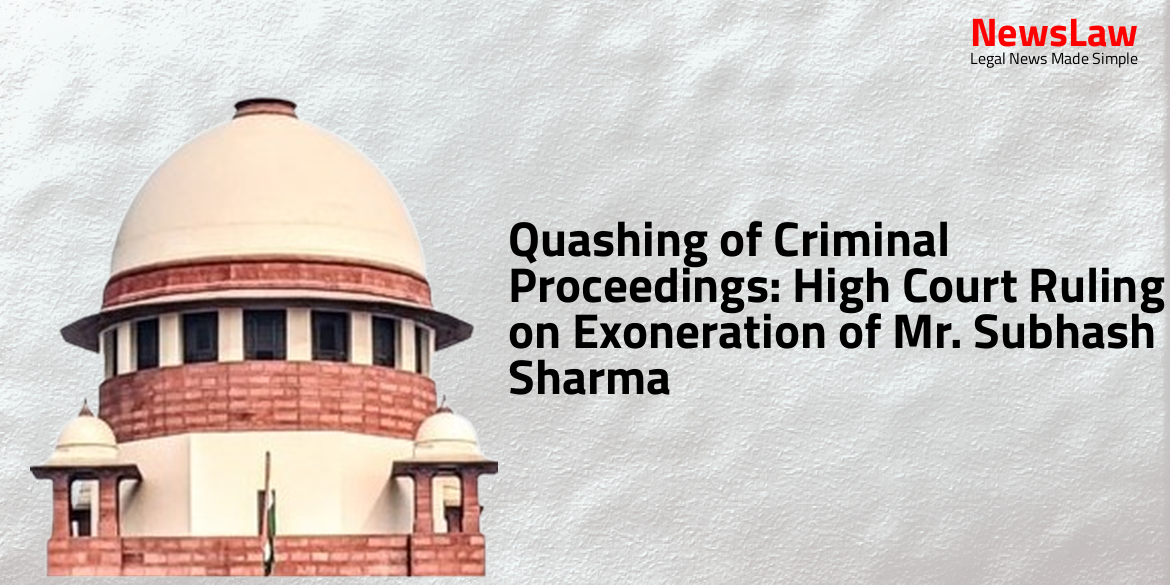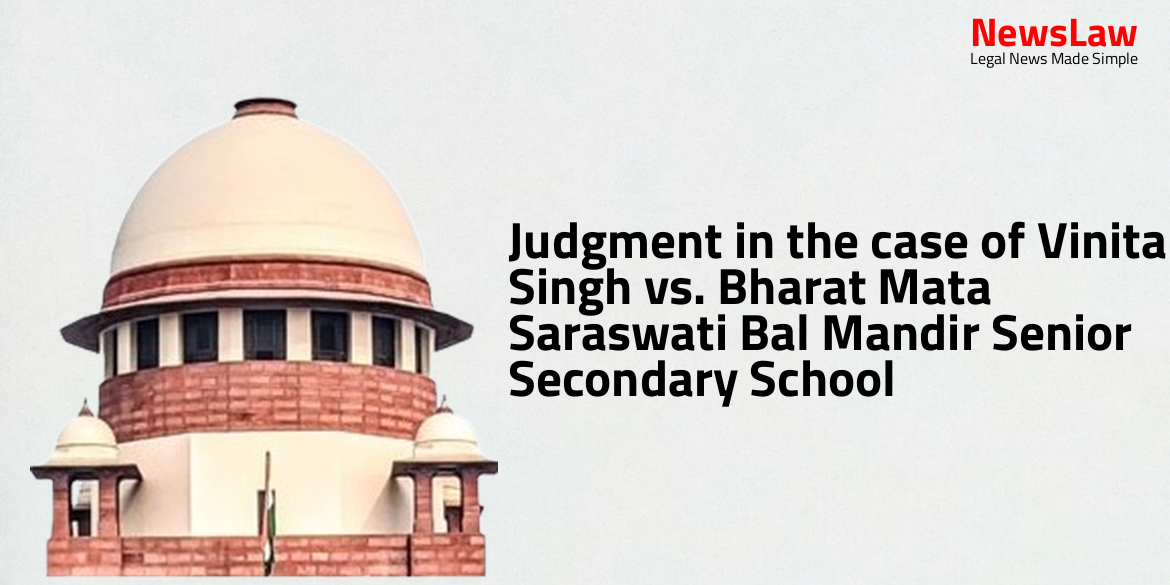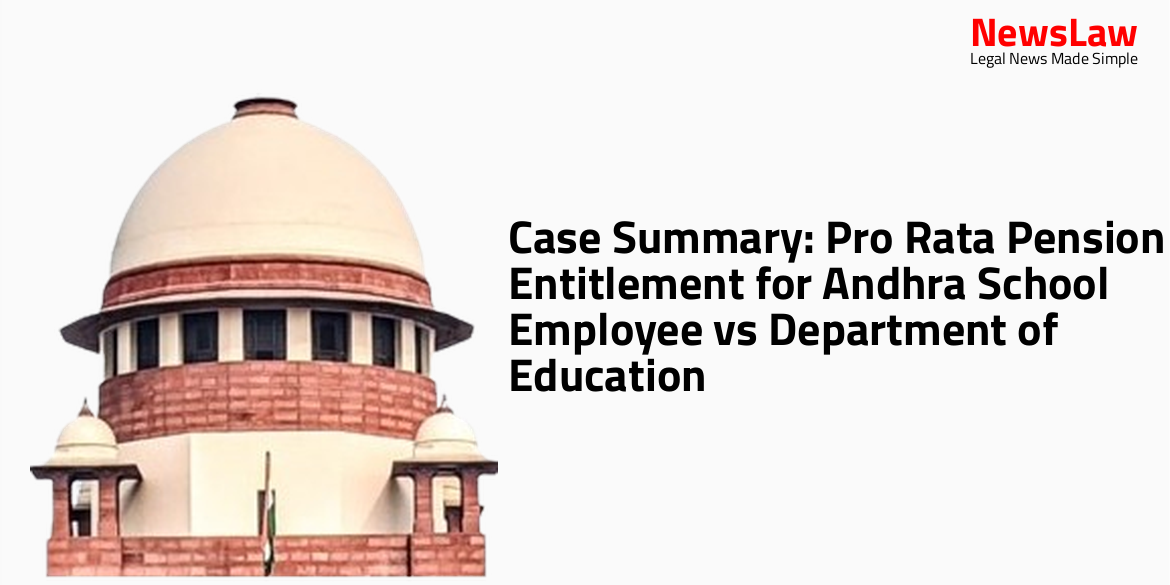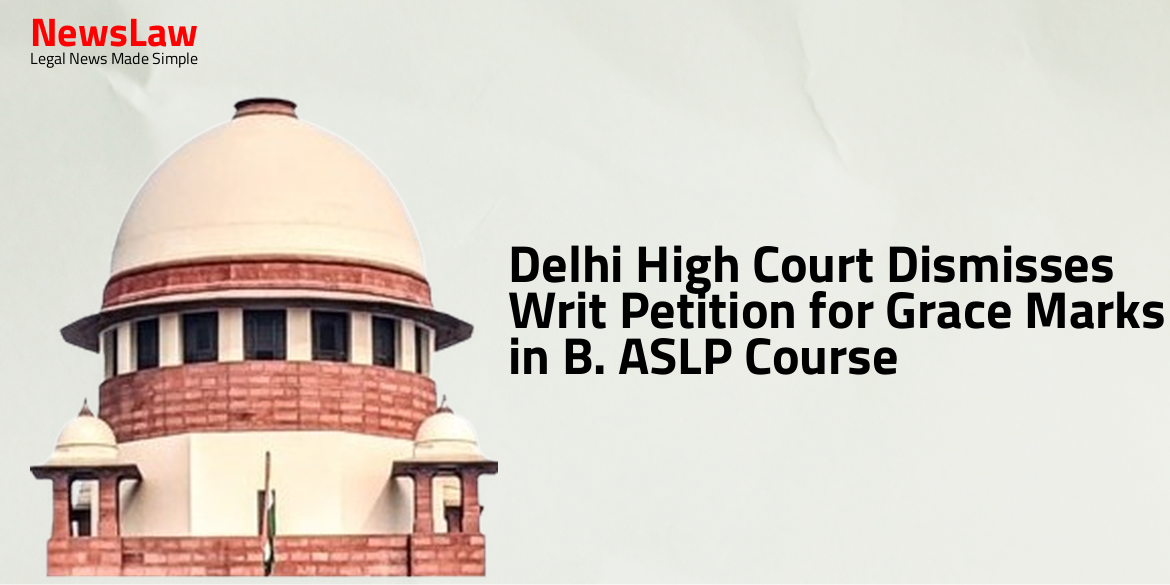The Delhi High Court recently ruled on the quashing of criminal proceedings against Mr. Subhash Sharma, following his exoneration in departmental proceedings. The case involved allegations of misconduct and illegal favors in exchange for monetary benefits. Despite contradictory findings, Mr. Sharma was ultimately exonerated in the departmental inquiry. This decision by the High Court emphasizes the importance of considering previous adjudication proceedings in criminal cases, highlighting the higher standard of proof required in criminal proceedings compared to disciplinary inquiries.
Facts
- -2.1
- The case involves a charge against Mr. Subhash Sharma, Dy. Supdt. (Jail), for misconduct in offering illegal favors to prisoners for monetary benefits, violating Delhi Prisons Act and Rules.
- An FIR was registered under Prevention of Corruption Act, 1988 against Mr. Sharma and six others accused after a TV news channel report named ‘Kala Pani’ showed some employees accepting bribes.
- Mr. Sharma was also accused of unauthorized communication with an individual, violating prison rules.
- Despite the first article of charge being deemed ‘not proved’ while disagreeing with the Enquiry Officer, Mr. Sharma was implicated in disciplinary proceedings.
- The disciplinary inquiry found Mr. Sharma to have lacked integrity and devotion to duty, breaching Rule 3 of CCS (Conduct) Rules, 1964.
- The departmental proceedings led to an inquiry report exonerating Mr. Sharma of the charges.
Arguments
- The standard of proof required in a criminal case is higher than in departmental proceedings.
- The inquiry officer found the allegations against the petitioner to be true, but the disciplinary authority disagreed.
- The matter was referred to the Union Public Service Commission for advice.
- The UPSC scrutinized the report and observed discrepancies.
- The allegations in the criminal proceedings and the disciplinary proceedings are claimed to be identical by the petitioner.
- The allegations involve illegal gratification in exchange for favors in Tihar Jail.
- The petitioner has been exonerated in the disciplinary proceedings based on the report submitted by the Central Vigilance Commission and concurred by the UPSC.
- The petitioner argues that since they have been exonerated of all charges in the departmental proceedings, the criminal proceedings based on identical allegations cannot be sustained due to the difference in standard of proof required.
- In departmental proceedings, the standard of proof is ‘preponderance of probability’ while in criminal proceedings, it is ‘beyond reasonable doubt’.
- The petitioner cites Supreme Court decisions to support their contention, including P.S. Rajya Vs. State of Bihar, Lokesh Kumar Jain Vs. State of Rajasthan, and Surendranath Tewari Vs. Deputy Superintendent of Police, EOW, CBI and Anr., (2020) 9 SCC 636.
Analysis
- The appellant was exonerated in the departmental proceedings for identical charges, which led to the quashing of criminal proceedings.
- The standard of proof in criminal cases is higher than in departmental proceedings.
- The findings in the adjudication proceedings are relevant in the criminal case.
- Exoneration on technical grounds does not bar criminal prosecution, but exoneration on merits does.
- The defamation case should be considered in light of findings against the accused in the adjudication proceedings.
- The charge sheet and the memorandum have identical allegations, supporting the exoneration in the disciplinary proceedings.
- The High Court should have exercised its power under Section 482 CrPC based on the facts of the case.
- The delay in the criminal case was caused by the respondent, violating the constitutional guarantee of a speedy trial.
- The Commission found no grounds to interfere with the conclusion in the advice given regarding dropping proceedings against the charged officer.
- The UPSC advised dropping the proceedings against the charged officer based on lack of established charges.
- The actions of the CO were found to be in accordance with the Delhi Jail Manual and rules.
- The Magistrate ordered re-investigation into the case despite the complainant’s readiness to cooperate.
- There was no video/audio evidence of the CO demanding or accepting bribes.
- The High Court dismissed the petition filed by the appellant under Section 482 CrPC to quash the charge.
- The findings in the departmental proceedings should be considered in the criminal case against the appellant.
- The Hon’ble Supreme Court quashed the criminal proceedings against the appellant based on the exoneration in departmental proceedings.
- The standard of proof required for establishing guilt in criminal cases is higher than in departmental proceedings.
- If exoneration in adjudication proceedings is based on technical grounds, prosecution may continue.
- However, if exoneration is on merits and the person is found innocent, criminal prosecution cannot continue on the same set of facts.
- The Court referred to the guidelines in the State of Haryana v. Bhajan Lal case for quashing FIRs or criminal proceedings.
- Adjudication proceedings and criminal prosecution can be launched simultaneously.
- The finding in adjudication proceedings is not binding on the criminal proceeding.
- The judgment highlighted the importance of the standard of proof in criminal cases compared to adjudication proceedings.
- The Court emphasized that the chances of conviction in a criminal trial involving the same facts appeared bleak.
- Express legal bar engrafted in provisions of the Code or concerned Act
- Specific provision in the Code or concerned Act for efficacious redress
- Bar to institution and continuance of proceedings in case of specific legal provisions
- The standard of proof in criminal cases is ‘beyond reasonable doubt’, which is higher than the standard of proof in disciplinary proceedings.
- The reliability and genuineness of the allegations against the petitioner have been tested in disciplinary proceedings.
- The findings of the Inquiry Officer, the Disciplinary Authority, and the UPSC on the allegations are concurrent.
- If the lower threshold of proof could not be met in the disciplinary proceeding, there is no purpose in prosecuting the criminal case.
Decision
- Petition allowed and proceedings dropped against the charged officer.
- No.55/2014 dated 11.07.2014 registered at PS ACB, N under Prevention of Corruption Act, 1988, along with all related proceedings, quashed.
- Hon’ble President exonerated the charged officer based on evidence and circumstances of the case.
- Petition allowed for quashing the FIR and subsequent criminal proceedings.
- Case deemed fit for quashing under power vested in the Court.
Case Title: SUBHASH SHARMA Vs. GOVT OF NCT, DLEHI & ORS. (2024:DHC:3980)
Case Number: CRL.M.C.-450/2017



